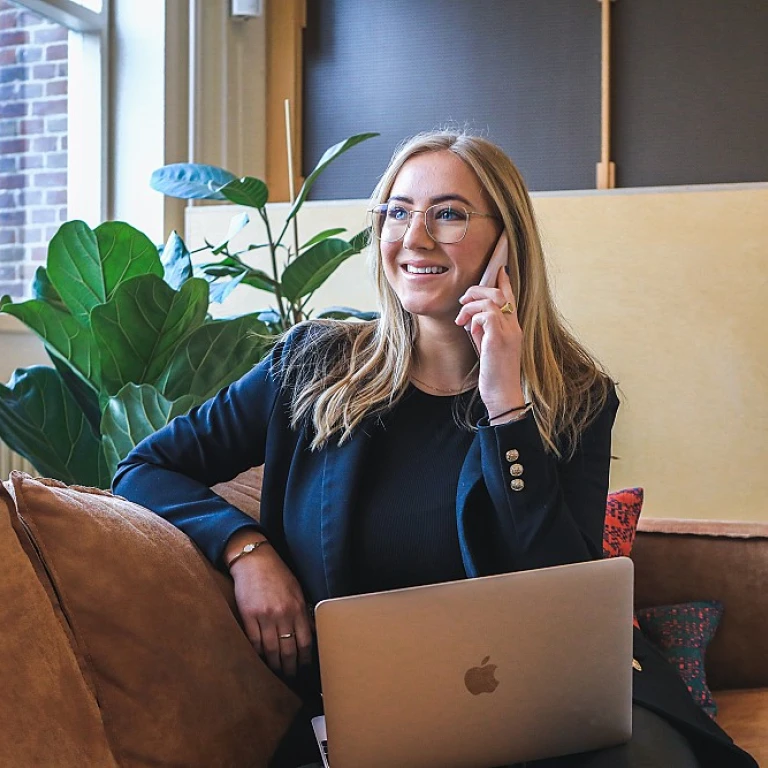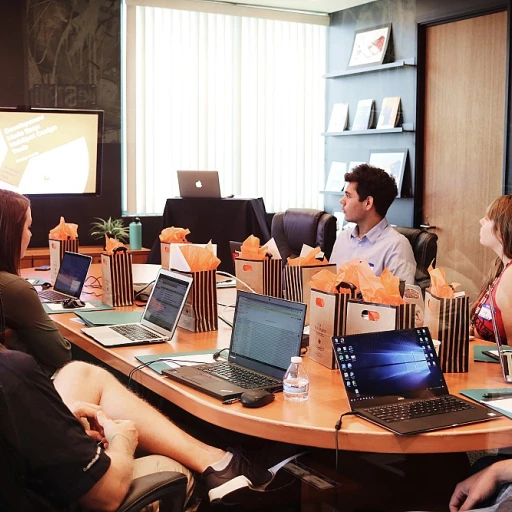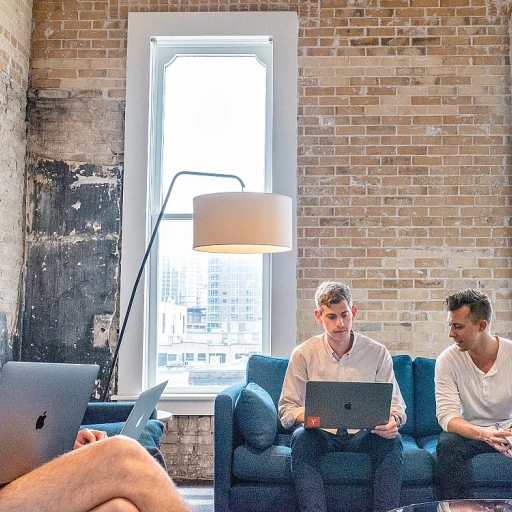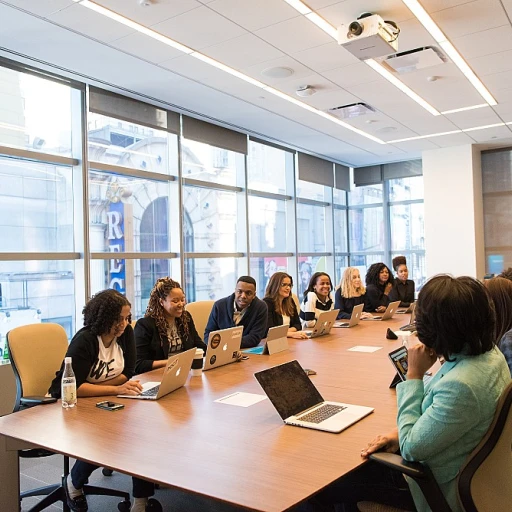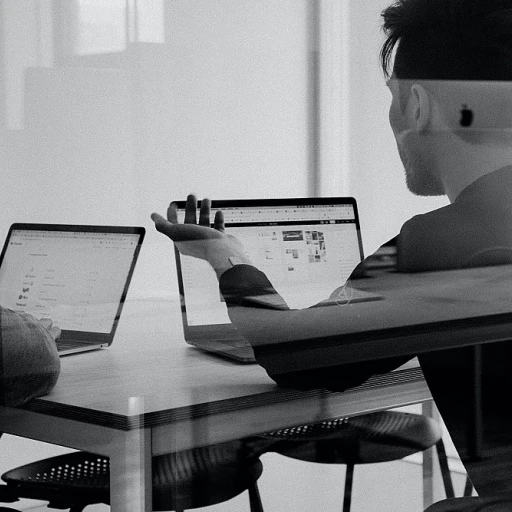
Understanding the Need for Modern Office Design
Embracing Innovation in Office Design
In the evolving landscape of office design, modern workplaces in the Arabian Emirates are shifting towards more functional and aesthetically pleasing environments. The increasing demand for privacy without sacrificing openness is reshaping the way offices are structured. As businesses look to attract and retain top talent, creating a workspace that promotes efficiency and comfort is paramount. Office cubicles with sliding doors present an innovative solution to these needs. Unlike traditional cubicle setups, these units offer the flexibility to create private offices or shared spaces as needed. The sliding glass door feature provides privacy while maintaining the aesthetic appeal of an open office. Moreover, tall private office configurations cater to those seeking a standard of privacy akin to a room, without the permanence associated with full partitions. This flexibility is especially beneficial in dynamic work environments where collaboration and concentration must coexist seamlessly. The integration of glass doors within these cubicles not only enhances privacy but also allows natural light to permeate the workplace, contributing to a brighter and more welcoming atmosphere. As companies continue to explore various options to enhance their workspaces, this glass partition solution stands out as a superior office furniture product. For more insights into how office superlatives affect workspace design, explore this in-depth article on the unique dynamics here.The Benefits of Sliding Door Cubicles
Advantages of Implementing Sliding Cubicles in Offices
In modern office environments, the adoption of sliding door cubicles presents a strategic approach to balance both functionality and aesthetics. These cubicles offer numerous benefits that cater to diverse workplace needs. Here’s a closer look at why integrating innovative solutions like sliding cubicles can be a game changer for your office.
- Enhanced Privacy: Sliding door cubicles provide a tailored level of privacy that standard cubicles may lack. This makes them ideal for meetings or focused work, offering an enclosed environment without the need for building permanent structures.
- Space Efficiency: These cubicles maximize office space utilization. The sliding mechanism, as opposed to swinging doors, ensures that no additional room is needed for door clearance, making them a smart choice for compact office layouts.
- Versatile Design Options: From glass panels to more opaque materials for increased privacy, the available options cater to different preferences and professional needs. Such a range in design ensures alignment with brand aesthetics and employee comfort.
- Improved Aesthetics: Incorporating sliding glass or more solid cubicle doors adds a modern touch to office interiors. These designs blend seamlessly with existing décor, enhancing the overall ambiance of the workplace.
- Flexibility and Adaptability: Sliding door cubicles offer adaptability; they can easily be repositioned or modified as per evolving office layouts or future expansions. This is particularly beneficial in agile workplaces.
- Sound Insulation: By choosing materials like glass or acoustic panels for sliding door systems, these cubicles can reduce noise pollution, fostering a more conducive setting for concentration and productivity.
Incorporating sliding cubicles is a strategic investment, offering functional benefits that align with contemporary office challenges. For those looking to redesign or refine their workspace, this product stands out as a star choice in office furniture solutions.
Cultural Considerations in Workspace Design
Blending Tradition with Modern Design
The integration of sliding door cubicles into office spaces within the Arabian Emirates requires a thoughtful consideration of cultural expectations and practices. Balancing the desire for a sleek, modern aesthetic with respect for cultural norms is essential in designing functional and appealing office environments. One of the key considerations is maintaining privacy, which is highly valued in both traditional and contemporary settings. Sliding glass doors offer a modern solution that accommodates this need, allowing private offices to retain an open feel while providing a discreet space for meetings or focused work. These glass office cubicles with sliding doors have become popular for offering both transparency and privacy, an essential balance in such workplaces. The design of office cubicles often incorporates Islamic architectural elements or motifs, aligning with cultural sensibilities. For instance, using tall private partitions or intricate lattice patterns can transform standard office furniture into something that bears cultural significance while serving its functional purpose. When buying office cubicles, particularly those with sliding cubicle doors, selecting products that align with regional aesthetics and structural needs is important. Herman Miller and similar brands offer customizable options that cater to these cultural and practical demands, making them highly sought-after in these markets. In shaping office design, local architects and designers draw from traditional concepts to create harmonious workspaces. The room's layout often reflects a balance between modernity and tradition, where functionalities are maximized without compromising the cultural ethos. This thoughtful approach not only enhances productivity but also fosters an environment where employees can connect more deeply with their workplace. Taking into account these cultural considerations is crucial. They ensure that while advanced office design developments continue, they are executed in a way that respects and celebrates local traditions. For more insights on optimizing human resources within such an environment, explore the distinct dynamics of Arabian Emirate offices.Case Studies: Successful Implementations
Real-World Examples of Sliding Door Cubicles in Action
In the evolving landscape of modern office designs, several companies have successfully integrated sliding door cubicles to optimize their workspace layouts. These implementations illustrate the tangible benefits of sliding glass doors and cubicles, particularly in terms of privacy and space efficiency. One standout example involves an international tech firm that opted for sliding glass doors in their private offices. The decision was driven not only by aesthetic preferences but also the demand for flexible, private working environments. The transparency of glass door panels allowed light to flow through office spaces, promoting an open and inviting atmosphere while maintaining the necessary privacy for focused work. Another noteworthy case is a financial institution that invested in tall private office cubicles with doors, effectively balancing the need for confidentiality and collaboration. By choosing this product, they ensured each office cubicle could transform into a private office when required. The inclusion of sliding cubicle doors provided an adaptive solution for spaces that could open up for group tasks yet offer quiet for individual work. In a different scenario, a company in the creative industry faced challenges with standard partition options that didn't meet their dynamic needs. Implementing cubicles with sliding doors, they discovered these adaptable installations not only enhanced privacy but also streamlined the workflow by providing easy access and fluidity across departments. Moreover, one leading brand known for its innovative office furniture, Herman Miller, pioneered sliding cubicles that have become a benchmark in the industry. Their products illustrate how functionality doesn't have to compromise on style, offering a range of customizable options that cater to diverse office layouts, from open-plan offices to more segmented work areas. These real-world applications of sliding door cubicles highlight their potential to revolutionize office spaces, meeting varied requirements with a touch of elegance and practicality. As businesses continue to prioritize efficiency and employee satisfaction, the successful stories of these companies underline the role of creative solutions in shaping the future of workplace design.Challenges and Solutions
Overcoming Common Hurdles
Implementing sliding door cubicles in an office environment might present a few challenges that organizations need to navigate carefully. One of the primary concerns is ensuring the balance between an open floor plan and providing sufficient privacy. Although sliding doors with glass panels can create a visually open environment, not all employees may feel their conversations or work are sufficiently private. Choosing frosted or tinted glass options can address this issue, allowing more discretion without sacrificing natural light.
Another challenge is the integration of sliding doors into existing office structures. Many traditional offices are not originally designed to accommodate modern features like sliding doors, so adjustments may be required. For instance, walls may need reinforcement to support the tracks of tall private office cubicles or modifications may be necessary to create standard entrance widths.
Optimizing the Workspace
Integrating cubicle doors and panels with diverse usability can optimize space efficiently. Consider utilizing customizable solutions, such as partition systems, that can adjust to different office layouts. Sturdy materials in sliding cubicle doors not only enhance privacy but also contribute to soundproofing, improving overall workplace efficiency.
Product Quality and Durability
Ensuring the durability of cubicles with sliding doors is essential for maintaining long-term operational efficiency. Products like those offered by renowned brands such as Herman Miller emphasize quality and the adaptability of sliding cubicle systems. Investing in high-standard office furniture will ensure the functionality and longevity of the workspace design.
Staff Adaptation and Feedback
A significant challenge is to ensure that staff adapts swiftly to the redefined workspaces with sliding doors. Encouraging open communication and feedback helps alleviate initial resistance. Employees' suggestions can be invaluable in refining the product layout, ultimately fostering a more productive environment that meets everyone's needs.
Future Trends in Office Design
Embracing Technological Innovations
The office landscape is evolving rapidly, with technological advancements playing a crucial role in shaping future trends. Sliding door cubicles are becoming increasingly sophisticated with the integration of smart technology. From automated glass door systems to advanced sliding mechanisms, these innovations enhance both functionality and aesthetics.
The incorporation of smart panels and doors in office cubicles allows for more flexible workspace configurations. Employees can easily transform their work environment, optimizing space usage and accommodating varying privacy needs. These intelligent systems also contribute to energy efficiency by regulating lighting and temperature within private offices.
Increasing Demand for Sustainability
Another trend influencing office design is the push for sustainability. Companies are increasingly prioritizing eco-friendly materials and products in their office furniture choices. Glass office partitions and sliding doors not only offer a modern aesthetic but also reduce the need for artificial lighting, promoting a more sustainable office environment.
Manufacturers, such as Herman Miller, are responding to these market demands by developing office cubicle options that are both environmentally friendly and high-performing. With the growing popularity of office cubicles featuring sustainable materials, businesses in the Arabian Emirates are better positioned to meet both organizational objectives and environmental standards.
Trends in Customization and Personalization
Finally, there is a notable shift towards customization in office design. Companies are seeking office cubicles with tailored features that align with their unique operational models. The ability to choose specific door types, panel configurations, and privacy levels helps businesses create workspaces that truly reflect their brand and cultural ethos.
Customization is particularly valuable in areas with diverse work requirements, allowing companies to offer employees a blend of private and collaborative spaces. Sliding glass doors and cubicle doors are available in an array of standard and non-standard sizes, providing ample choice for businesses looking to design their ideal workspace.
In conclusion, as office design continues to evolve, embracing these emerging trends can greatly enhance workplace efficiency and employee satisfaction. Keeping pace with technological, sustainable, and customizable solutions, companies can create environments that are not only functional but also inspiring.

